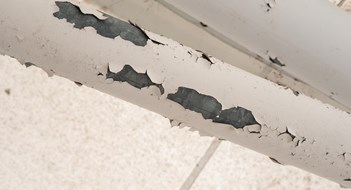Given all the big expenses condo, co-op, and HOA boards have to keep track of, smaller things, like boxes of cleaning supplies and other everyday maintenance items might seem secondary. But the truth is, neglecting those ‘little’ expenses c…


Given all the big expenses condo, co-op, and HOA boards have to keep track of, smaller things, like boxes of cleaning supplies and other everyday maintenance items might seem secondary. But the truth is, neglecting those ‘little’ expenses c…

Efficient condo and co-op boards make a building run smoothly—but the most effective ones don’t work alone; they understand how to work together with other industry professionals, including property managers, attorneys, accountants, and oth…

According to a recent bulletin from the Council of New York Cooperatives and Condominiums (CNYC), all NYC co-ops and condos with more than three residential units are subject to Local Law 31, which requires XRF testing for lead-based paint …

The introduction of New York State Senate Bill S7541 has raised the specter that shared-interest communities, including co-ops and condominiums, may have to release the results of engineering reports, inspections, and permits to residents, …

On July 4th, the “Big Beautiful Bill” was signed into law, making significant changes to the nation’s tax and benefits systems and expanding certain housing and economic development policies. According to a statement from the National Housi…

Access agreements—the legal documents you must secure before you can encroach upon your neighbors’ property to carry out needed work on your own—have long been a thorn in the side of co-ops and condos. This is particularly true in Manhattan…

Board meetings are where decisions are made, information is shared, and policies are implemented in multifamily communities. The minutes from these meetings are more than just a record of what was discussed; they serve as a reference for al…

According to a June 17 press release from the National Housing Conference (NHC), a new report from the Conference outlines conditions for administrative release from the long-standing conservatorship of Fannie Mae and Freddie Mac (the Enter…

New Yorkers are not big fans of sidewalk sheds—the hulking, sunlight-and-storefront-blocking, trash-accumulating, rat-sheltering metal-and-plywood structures that protect passers-by from falling debris during facade repair and restoration w…

In New York City, certain cooperative apartment buildings can receive substantial revenue by selling unused air rights. While potentially very lucrative, capitalizing on these opportunities requires navigating unique challenges, from antiqu…